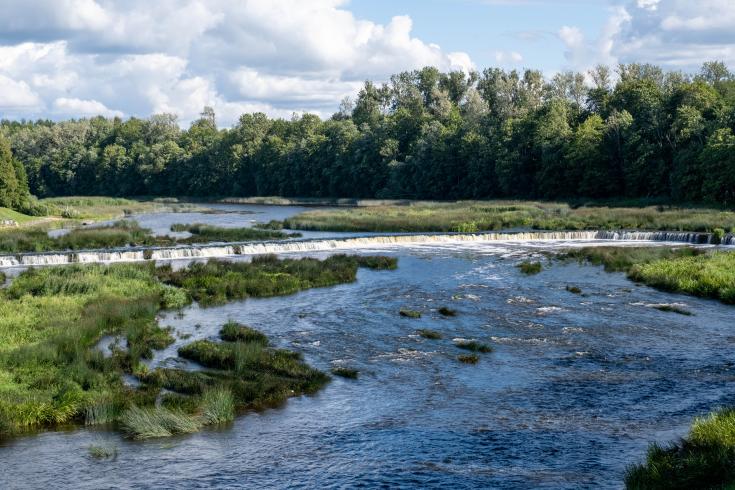Smart Steps Towards Groundwater Resilience in Latvia
On 22 April 2025, over 30 key stakeholders from across Latvia gathered online to take a significant step in understanding a silent but growing challenge—groundwater drought. The event, titled “Analysis and Modelling of Groundwater Vulnerability to Drought in Latvia”, brought together decision-makers, researchers, and practitioners to discuss how data and innovation can help us manage our most precious resource.

A New Tool for a Hidden Risk
Led by the Ministry of Climate and Energy and hosted by the University of Latvia, the session marked a milestone: the unveiling of Latvia’s first-ever groundwater vulnerability to drought map, focused on shallow aquifers. This pioneering work, presented by PhD candidate Jānis Bikše, uses a machine learning model trained on data from Latvia, Estonia, and Lithuania.
The tool doesn’t just map risk—it fills a critical gap in our knowledge. While meteorological droughts are often easy to spot, groundwater droughts can be more elusive, developing slowly, lingering for months or even years, and affecting vital ecosystems like wetlands and rivers. Latvia’s aquifers, for instance, generally show a 2–3 month delay in response to surface droughts—a memory effect that varies widely across regions.
From Insight to Action
The discussion that followed revealed a strong consensus: better data means better decisions. Stakeholders underlined the urgency of improving groundwater monitoring to keep up with growing challenges. Several clear recommendations emerged:
- Install automatic groundwater level loggers in currently unmonitored regions.
- Increase measurement frequency from twice daily to hourly to capture rapid changes.
- Adopt telemetry systems for real-time data access.
- Prioritize shallow aquifers in monitoring plans due to their vulnerability and ecological value.
- Include springs in monitoring networks, equipped with automatic water discharge measurers.
These steps are not just technical upgrades—they’re essential for smart water management, especially as climate change increases pressure on water resources.
Cross-Border Cooperation in Action
The event also spotlighted Latvia’s work within the RIWET project, showing how cross-border learning is already making a difference. By integrating this new modelling approach into River Basin Management Plans under the EU Water Framework Directive, Latvia is setting an example for how innovation, collaboration, and strong data can drive smarter policy.
This event proved that when scientists, ministries, and monitoring agencies come together, real progress is possible. With continued collaboration, the region is well on its way to building groundwater resilience that lasts.

